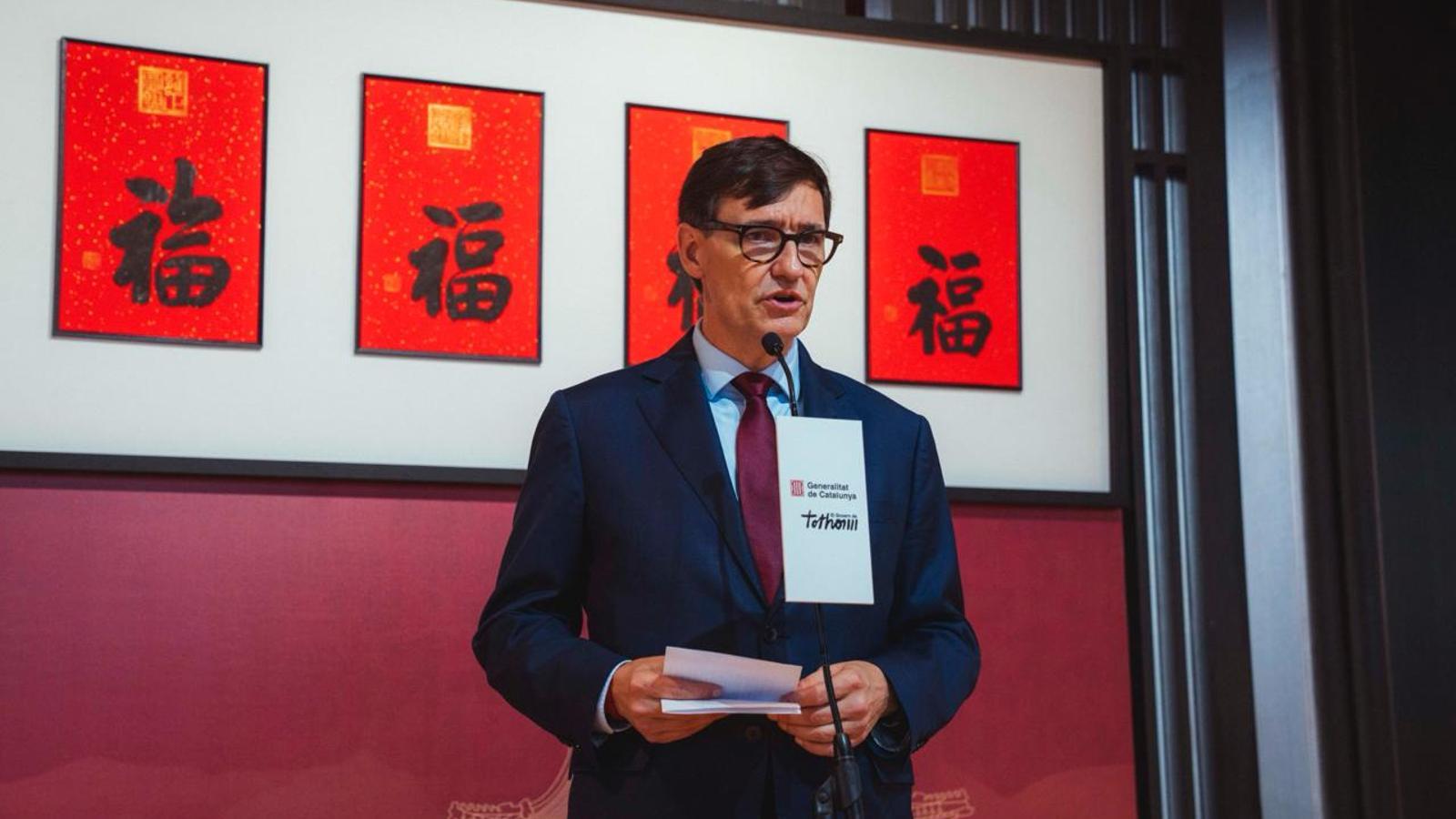This is how Salvador Illa's trip to China is going: Catalan courses, an investment in Cornellà, and meetings with the Communist Party.
The president offers Catalonia to China as a "gateway to Europe and a bridge to South America and North Africa."


BarcelonaThe President of the Generalitat (Catalan Government), Salvador Illa, is determined to expand the influence of the Generalitat (Catalan Government) and Catalan companies on the Asian continent. With this in mind, he arrived in China last week, where he continues his official visit, following his previous visits to Japan and Korea at the end of May. The Generalitat (Catalan Government) is working on a strategic plan to deepen relations with this continent And during the trip, Isla has already announced an element that will play a key role: the opening of a Generalitat delegation in Beijing, which will expand the network of offices of the Government abroad to 22. It is a commitment to foreign action that was included in the investiture agreement with ERC and that the PSC makes its own to open new markets and promote Catalonia's interests hand in hand with the Spanish government. Now, what else has the president done on that trip?
This Thursday, at a conference before a hundred business leaders in Shanghai, Isla offered Catalonia in China as "a gateway to Europe and a bridge to South America and North Africa." In a speech in English, the president defended Catalonia's virtues as a land for investment, highlighting "the legal security" and "stability" it offers investors. Economic data highlight the importance of China for Catalonia: the Asian giant has invested 1.279 billion in the last five years, 300% more than the previous five-year period.
In fact, China is the fifth largest investor in Catalonia in the world, a relationship the Catalan government wants to cultivate, especially in the era of Trump and the tariff war, with the idea of "diversifying" trade relations. Also helping will be the agreement signed Thursday by the Port of Barcelona and the Port of Shanghai to create a "green and digital" maritime corridor between both infrastructures. The agreement was signed Thursday on the occasion of the visit of the Catalan delegation, led by the president, to this port, the largest container port in the world.
For now, with the trip yet to be completed, Illa will return to Catalonia with a new investment in his pocket, announced on Wednesday: the Chinese company Chery will open an automotive research and development center in Cornellà de Llobregat this year. It will land in the city's City Park business park, where multinationals such as Siemens Mobility and Mecalux already operate. Taking advantage of the meeting he had with the president of Chery, the head of the executive offered to set up its European headquarters in Barcelona.
The Huawei controversy
More controversial was Isla's meeting with Huawei on Sunday: government sources assured that it was a "courtesy" and institutional meeting, amid a scandal over the contract the Ministry of the Interior awarded to the company to manage the storage of wiretaps ordered by judges and prosecutors. Huawei has also become an uncomfortable company for the European Union: in the wake of the scandal over alleged bribery of MEPs, the European institutions have banned it from lobbying the European Parliament and frown upon authorities maintaining contact with them. The opposition Junts (Junts) has already asked Isla for an explanation and demands to know what he discussed and who requested the meeting. In any case, Isla justified the visit also to thank Huawei for its support of the Mobile World Congress (MWC), distancing himself from the spying controversy: "It is one of the functions that the president of Catalonia must have: to defend the interests of Catalonia."
The president's agenda, who will remain in China until August 1, has included events promoting gastronomy, sports, and collaboration in research. He also highlighted Catalan culture and language, an area in which he made a notable announcement: starting in the second semester of the 2025-2026 academic year, Catalan courses will once again be offered at Beijing Foreign Studies University, thanks to an agreement with the Ramon Llull Institute.
Higher-level political meetings than in Japan.
In China, political meetings have risen in level with respect to the agenda that the president held in Japan and Korea, where he only met with regional authorities. There was a precedent that had served to prepare the ground: in November, Isla received Zhao Leji, president of China's National People's Congress, the highest-ranking official in the state, at the Pedralbes Palace. It was he who officially invited him to the country, where this time he met with the vice president of this chamber, on the one hand, and senior leaders of the Political Bureau of the Central Committee of the Chinese Communist Party, on the other.
Before all of them, Isla expressed his intention to strengthen cooperation between China and Catalonia, hand in hand with the Spanish government, given the weight of the Asian giant as an economic engine and geopolitical actor. "From our perspective, respecting the Chinese perspective, we believe that now is the time to strengthen relations. That is our goal," Illa argued. From the meetings with Communist Party leaders, a twinning agreement emerged: that of Catalonia with the Chinese province of Anhui, a leader in the automotive industry, agreed upon with the leader of the local Communist Party.
In the economic sphere, Isla has met with Chinese business leaders and visited the headquarters of Catalan companies in the country—there are more than 280. One of these visits was to the Volkswagen factory where the Seat Tavascan is manufactured, from where he called on the European Union to yield in negotiations with the company. and agree to lift the tariffs it applies to this vehicle, manufactured in China. The car manufacturer's argument, echoed by Isla and the Spanish government, is that it is a vehicle designed "entirely" in Europe.
